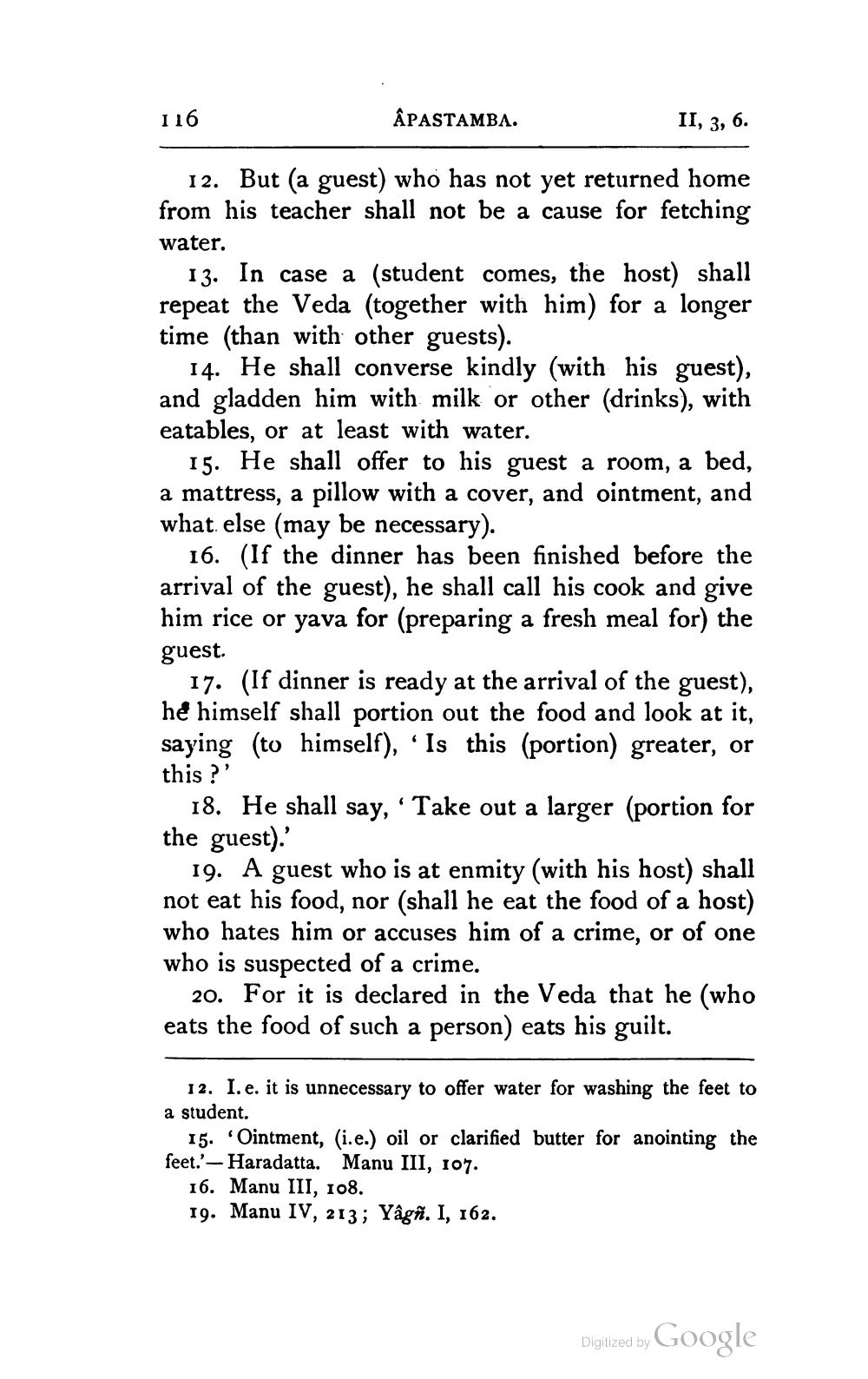________________
116
II, 3, 6.
12. But (a guest) who has not yet returned home from his teacher shall not be a cause for fetching
ÂPASTAMBA.
water.
13. In case a (student comes, the host) shall repeat the Veda (together with him) for a longer time (than with other guests).
14. He shall converse kindly (with his guest), and gladden him with milk or other (drinks), with eatables, or at least with water.
15. He shall offer to his guest a room, a bed, a mattress, a pillow with a cover, and ointment, and what else (may be necessary).
16. (If the dinner has been finished before the arrival of the guest), he shall call his cook and give him rice or yava for (preparing a fresh meal for) the guest.
17. (If dinner is ready at the arrival of the guest), he himself shall portion out the food and look at it, saying (to himself), 'Is this (portion) greater, or this?'
18. He shall say, 'Take out a larger (portion for the guest).'
19. A guest who is at enmity (with his host) shall not eat his food, nor (shall he eat the food of a host) who hates him or accuses him of a crime, or of one who is suspected of a crime.
20. For it is declared in the Veda that he (who eats the food of such a person) eats his guilt.
12. I. e. it is unnecessary to offer water for washing the feet to a student.
15. feet.
Ointment, (i.e.) oil or clarified butter for anointing the Haradatta. Manu III, 107.
16. Manu III, 108.
19. Manu IV, 213; Yâgn. I, 162.
Google
Digitized by




